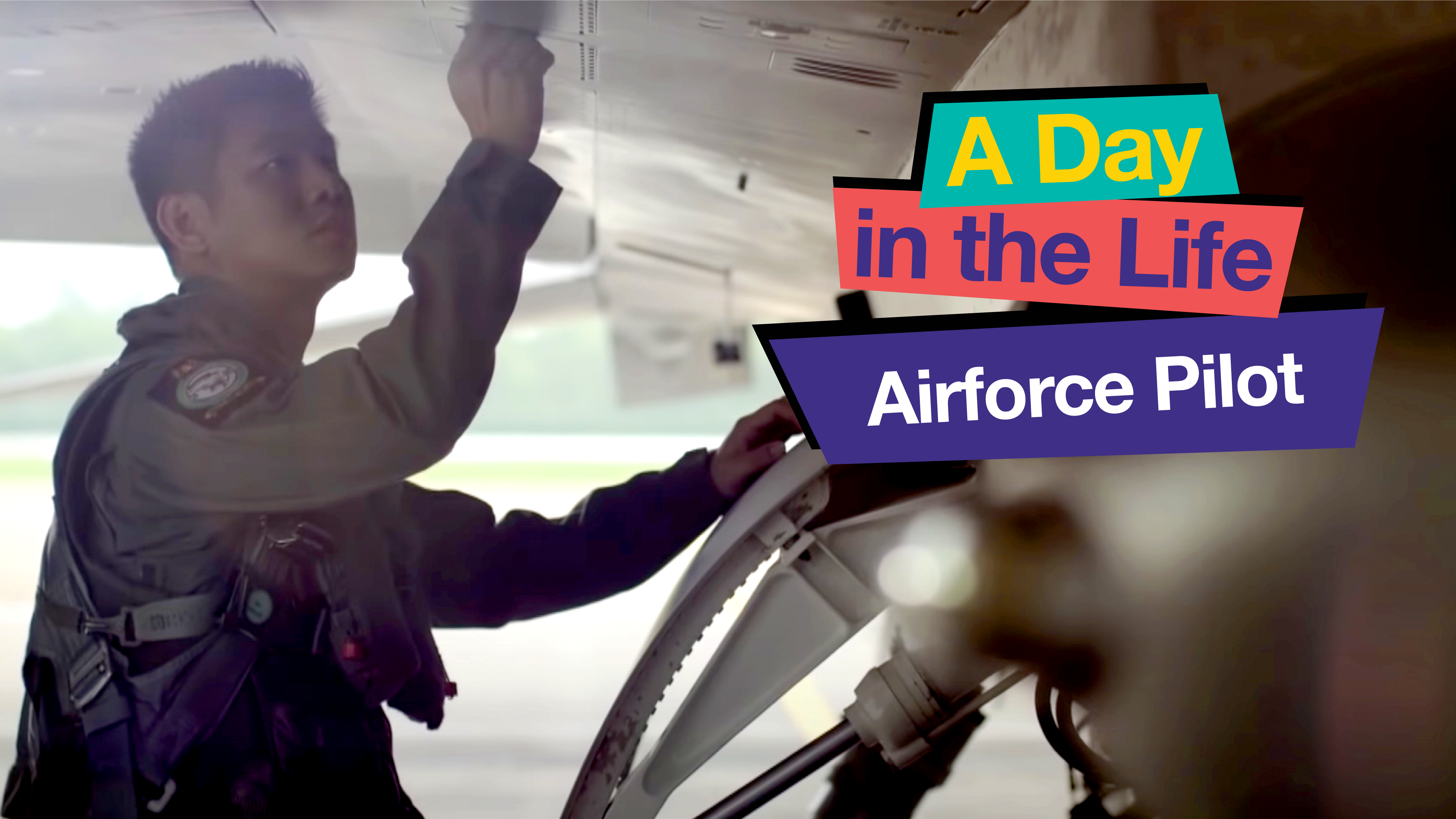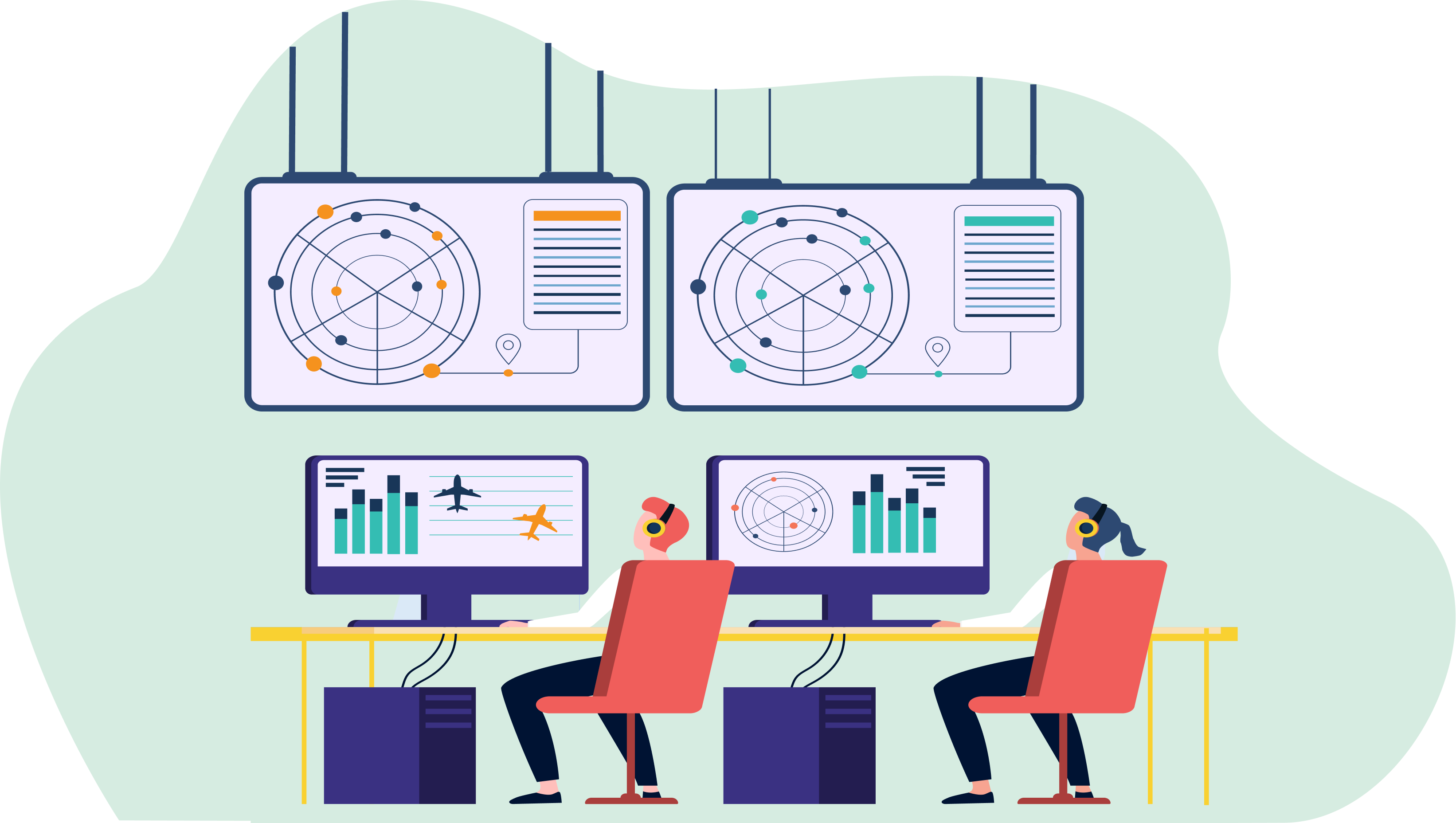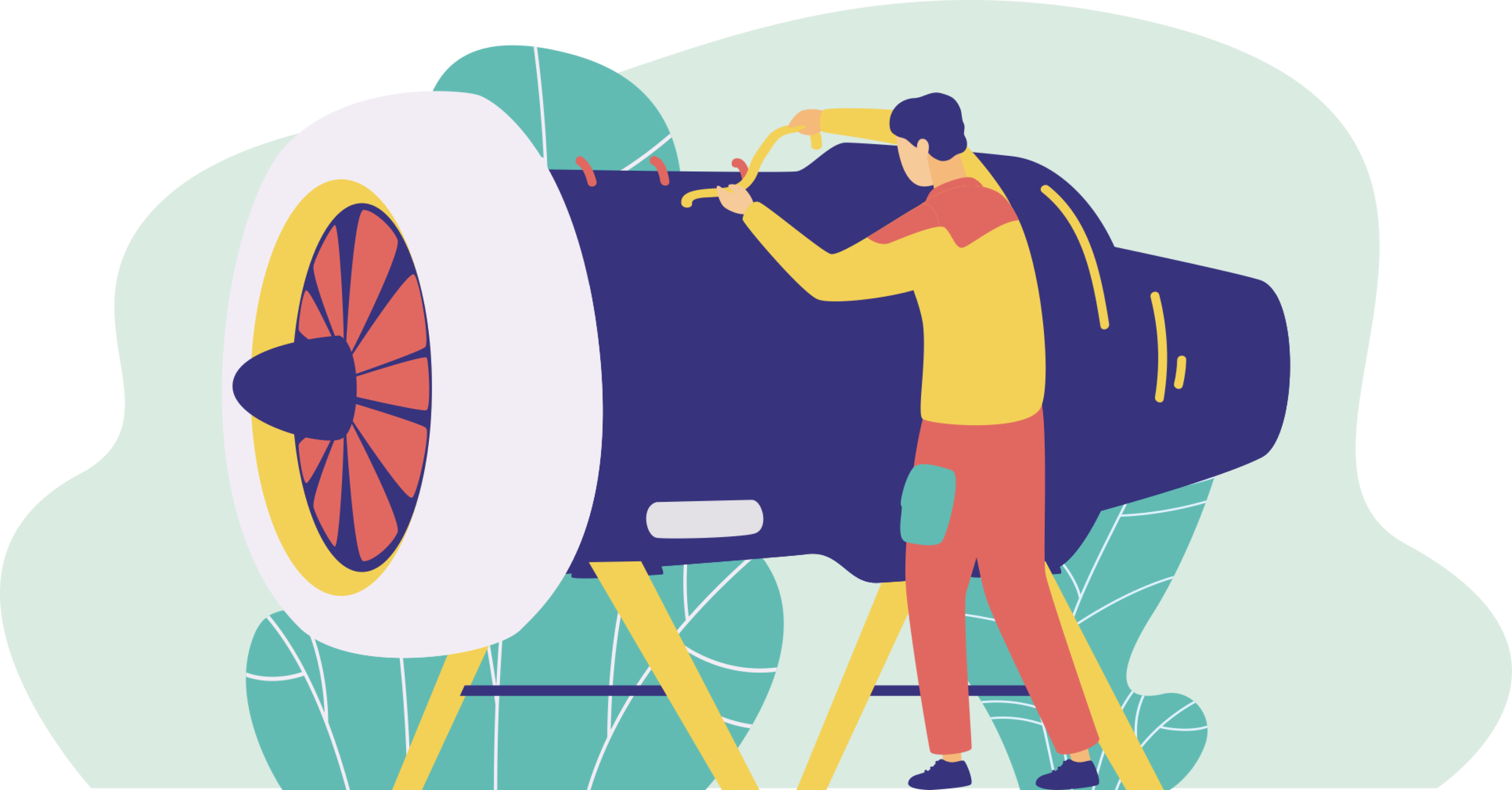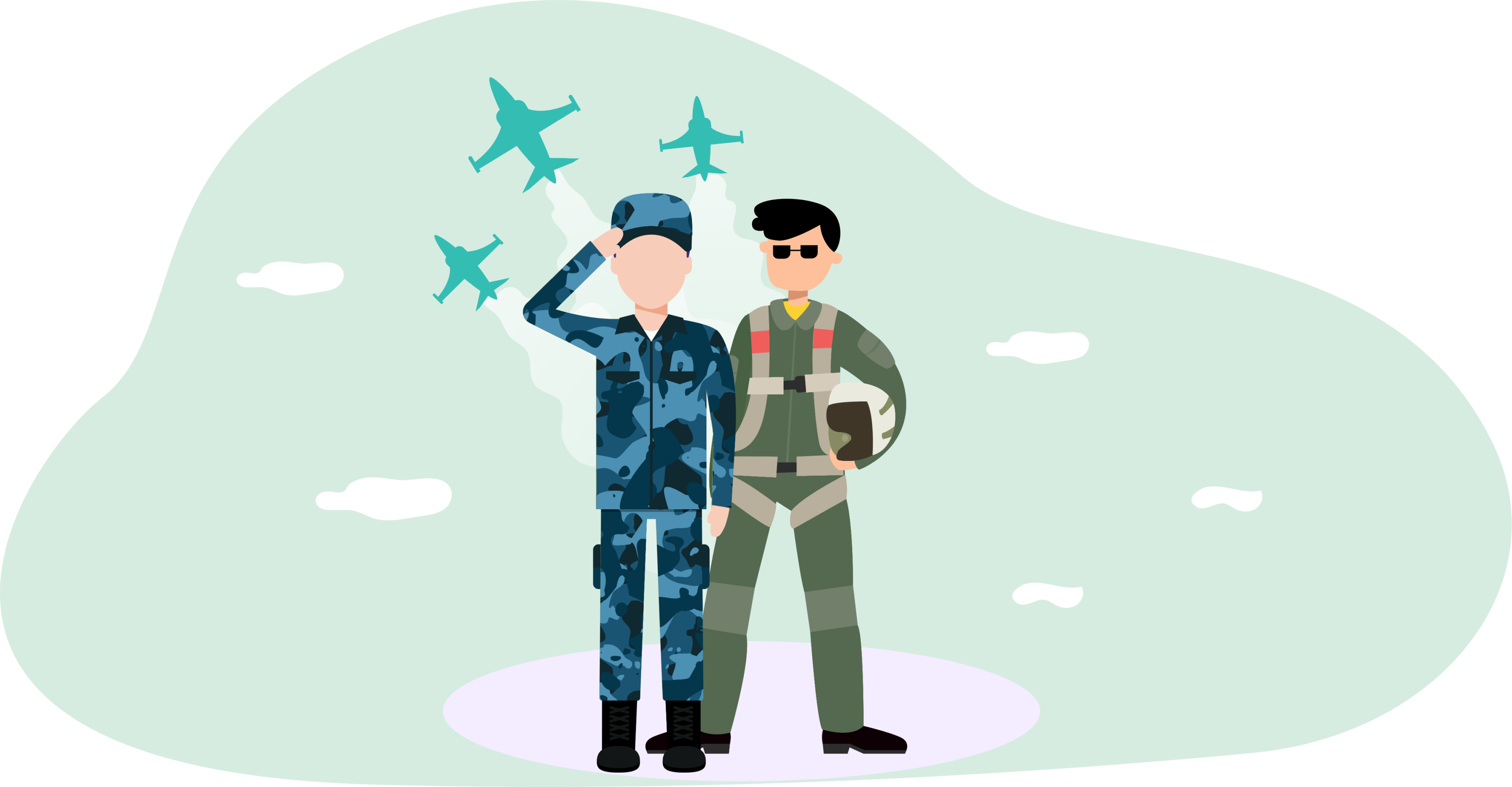
Air Force Pilots are the first line of defence for the country, trained to fly military aircraft and handle weapon systems.
Air Force Pilot Job Description
- Prepare and submit flight plans and attend crew briefings before take-off.
- Navigate aircraft by proper procedures for reconnaissance, surveillance, navigation and rescue missions.
- Operate mechanical, electrical and electronic equipment.
- Ensure that all instruments and controls operate well before and after flights.
- Maintain continuous contact with air traffic controllers during the entire flight.
Note
Becoming one of the Air Force Pilots is not easy - thousands apply every year, but only a few hundred pass the selection and interview.
What you should know about Air Force Pilot jobs in Singapore
Nature of Work
As an Air Force Pilot, you will operate military aircraft, conduct missions, ensure flight safety, and perform aerial manoeuvres.Key Advice
As an RSAF Pilot, you can expect to work more than 80 hours per week, juggling the demands of missions and training.-
Entry RequirementsEntry Requirements
- Minimally an 'A' Level/IB Certificate, diploma or bachelor's degree is needed.
- Your eyesight must not be more than 600 degrees and astigmatism not more than 200 degrees.
- There is a minimum height requirement of between 1.62m and 1.90m.
-
Possible PathwayPossible Pathway
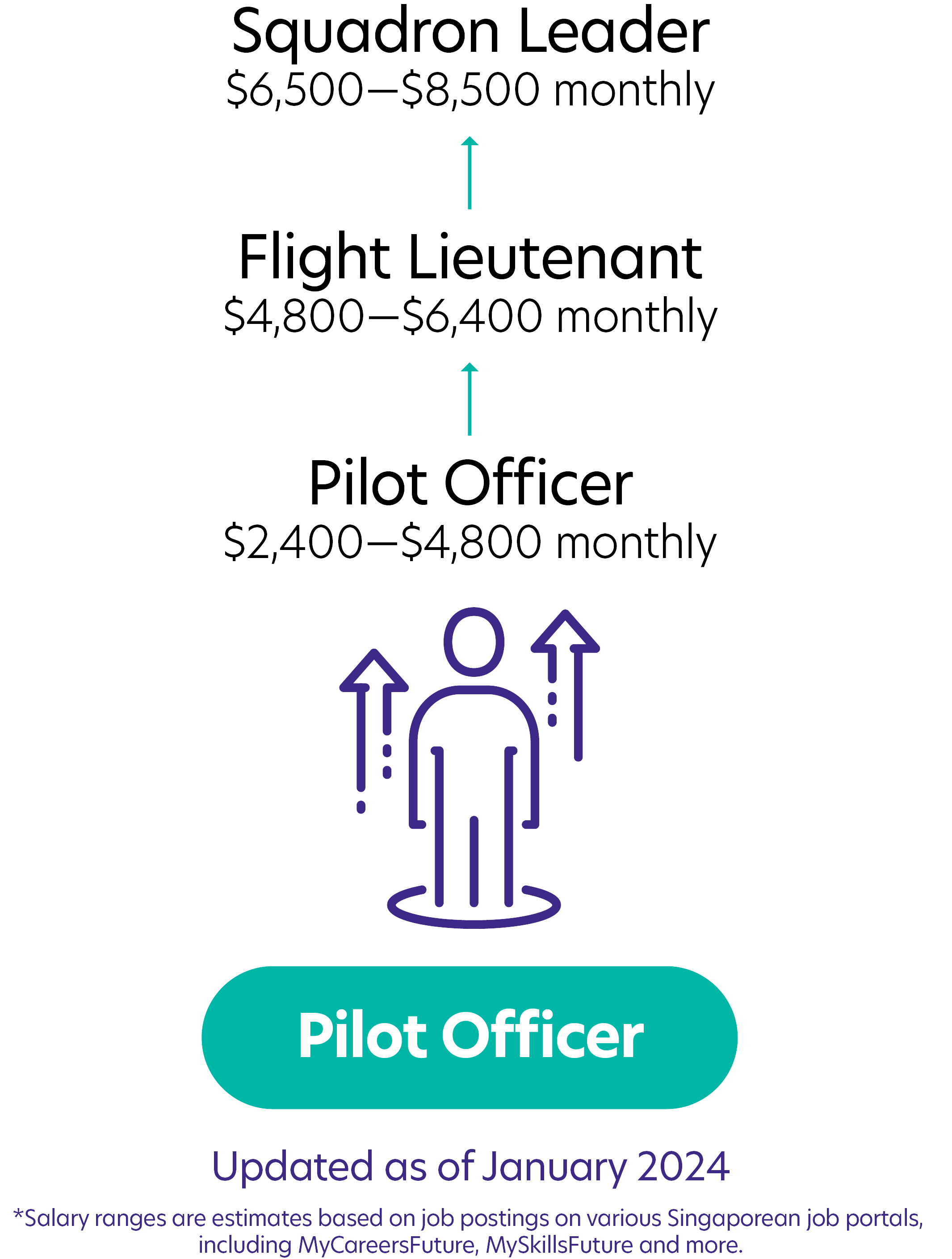
Skills you may need to pursue an Air Force Pilot career in Singapore
Motor Coordination
Excellent hand-eye coordination for effective aircraft control and response to flight conditions.Technical Flight Skills
Advanced flying, navigation, and aircraft systems proficiency for military aircraft.Aircraft Configuration Knowledge
Knows combat and reconnaissance aircraft configurations for mission adaptation.Problem-Solving
Quick assessment and resolution of in-flight challenges and emergencies.Collaboration
Works well with co-pilots, ground crew and mission coordinators for seamless operations.Self-Management
Self-discipline and resilience to manage a military pilot's demands and stress.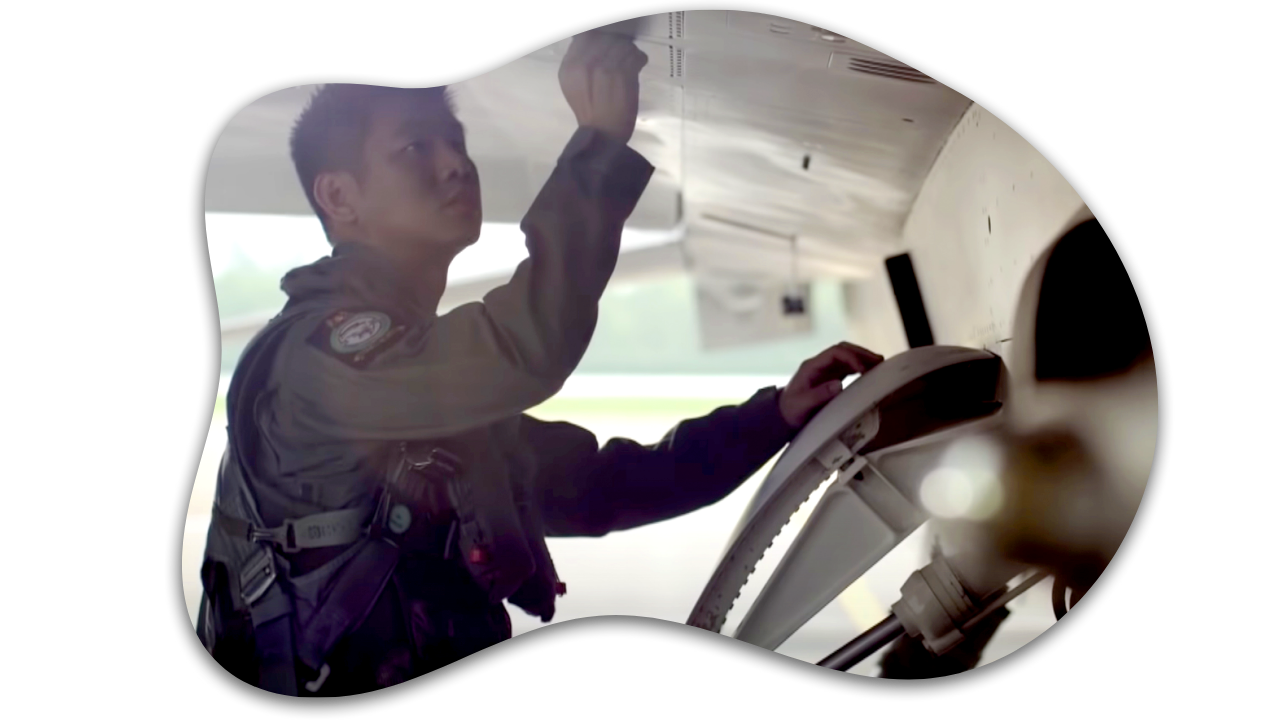
“A Fighter Pilot is someone who is resilient, persevering and one with a strong willingness to learn.”
MAJ Benjamin Fu, Fighter Pilot
Related Job Roles
Explore Other Programmes
Browse AllYou have bookmarked your first item!
Find it in My Discoveries with insights on your interests!

